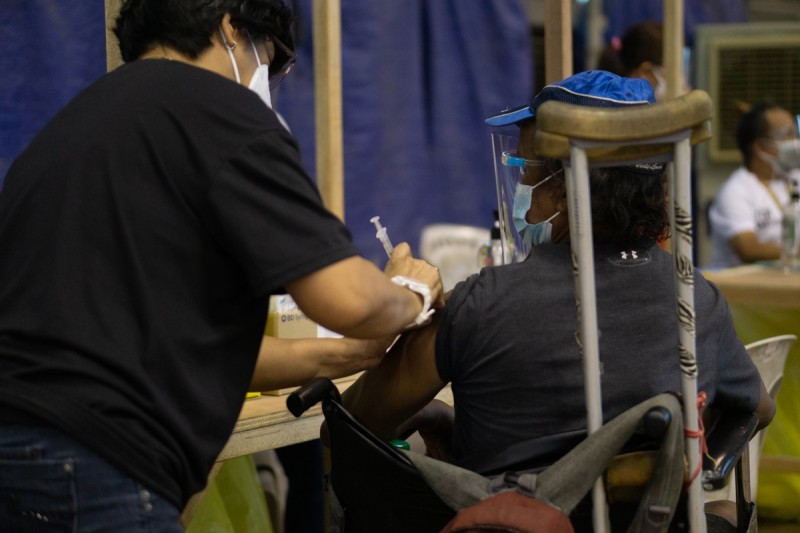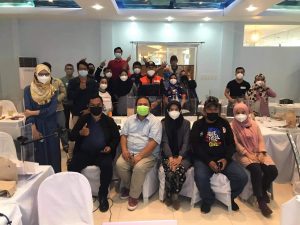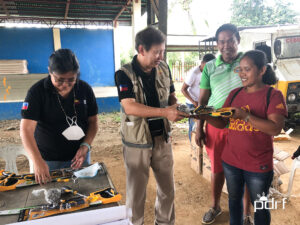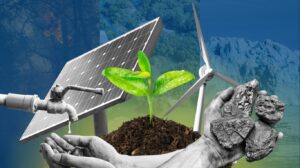On a humid Manila day, a shoeless man in black shorts, black t-shirt, and blue football club cap eased himself down, out of an iconic Philippine jeepney and into a wheelchair. This was a good day. Today, he received a dose of COVID-19 vaccine.
Robert is one of nearly 3 million homeless people in the National Capital Region (NCR), to which the City of Manila belongs. With money earned by begging, he pays for food, and anything left over goes into medicines. Diabetes has cost him some of his toes and fingers. Despite his health needs, he is not comfortable dealing with officials or health workers.
“I haven’t asked for help from the barangay (village) clinic because I get embarrassed when I go there. When people see me, they are disgusted by my appearance. It is hurtful when I see people being disgusted by how I look, or just because I roam the streets, am homeless and don’t have an address,” Robert said.
Today, he is at the gymnasium of the University of the Philippines (UP) in Diliman, Quezon City which has been turned into a vaccination centre to reach those who might miss out on life-saving vaccines because of stigma, a lack of money or residential address, access to vaccination registration, or other barriers.
“This vaccination drive is a huge relief for us, especially since the vaccines are free. We hope that everyone gets vaccinated. It’s a relief knowing that eventually, everyone will be vaccinated,” said Robert.
Medical volunteer Dr Patrick Javier said, “There’s a certain stigma to being homeless and we try to make sure people feel as welcome as possible and that their situation is not a hindrance to getting vaccinated. Like anybody else, they deserve to be vaccinated.”
Robert has become a vaccine champion. “I also try to be an example to others and tell them that vaccines help protect us from COVID-19.”
The two-day vaccination drive, which fully vaccinated over 630 people, is part of a wider effort to support local government units around the Philippines to partner with civil society organizations to ensure vaccines reach homeless people, survivors of gender-based violence and others at risk, and prevent them from contracting the coronavirus or missing out on COVID-19 vaccines. Apart from vaccinations and information on COVID-19, the drive also included transport, meals, childcare and health services.
Also at the gymnasium were massage therapists Richard Cuartero and Arlene Barrios, a couple who are both blind. Clients stayed away when the pandemic hit.
“We lost our jobs because of the pandemic and consequently our income, so it’s really difficult for us to find food to eat sometimes,” said Ms Barrios.
“We handle people physically so if we don’t get vaccinated, we could get infected or we could infect other people so it’s great to be protected by vaccines,” added Mr Cuartero. “We hope that things go back to normal so people like us can go back to our jobs.”

Arlene Barrios, a blind massage therapist, is assisted by her neighbor in completing a form before she receives her COVID-19 vaccine. ©WHO
The massage therapists had been turned away at one vaccination site near their home because they were not registered online.
“But how could we do that when we’re blind?” asked Ms Barrios. Her greatest wishes? “For my kids to finish their studies and someone to help us in our daily living because it’s really been very difficult for us.”
The drive aims to reach people from a variety of situations such as being homeless or survivors of gender-based violence, or living with a disability, that make them more vulnerable to contracting COVID-19 and bring barriers to vaccination. They might face lack of money to buy personal protection equipment; exposure to crowded areas such as streets or shelters; limited access to soap and water; anxiety, depression and trauma that compromises the immune system; co-morbidities that make people more vulnerable to becoming ill with COVID-19; exposure to occupational hazards, the cost of missing a day’s work, and limited time or childcare options.
The drive was organized by the Philippine Department of Health (DOH), Quezon City Health Department, Commission on Human Rights, the World Health Organization, UNFPA Philippines, Australian Aid, Coalition Against Trafficking in Women – Asia Pacific, Philippine Disaster Resilience Foundation, and Kalinga Foundation.
This pilot community vaccination serves as an inspiration and proof of concept of how the DOH and its development and civil society partners can reach vulnerable populations in NCR and other regions.
Dr Rabindra Abeyasinghe, WHO Representative to the Philippines, said lessons from the vaccination drive would help refine guidance WHO and partners were finalizing to help vaccines reach everyone everywhere.
“Vaccines are a critical tool in the fight against COVID-19. They are highly effective for reducing severe disease and hospitalization, and saving lives. We must keep fighting for equitable distribution of vaccines,” said Dr Abeyasinghe.
“We must all get vaccinated as soon as it is our turn and also continue as much as we can with preventive measures like wearing a mask, physically distancing, good ventilation, washing our hands, covering coughs and sneezes, and avoiding closed spaces, crowded places and close-contact settings. Using all these tools in combination is key to limiting COVID-19 transmission, and the virus’ ability to mutate into more dangerous variants,” he added.
Dr Dulce Natividad, a member of the UP’s faculty and supervisor of the vaccination drive, said partner NGOs were critical in bringing in under-served people.
“Because these organizations have been working with the communities for a long time, they know where to find the members of the community, they know how to talk to these people, they have the trust of these people and that’s work that’s built over time, long before vaccination.”
Dr Natividad said the goal was to reach everyone. “We cannot think of ourselves as separate from others. One person who is not vaccinated or one person who has no access to health services represents an equity issue for our society.
“Solidarity during this time of pandemic is important. We can’t just talk about our own vaccination; we must ensure that others are vaccinated as well. Our own protection relies on other people’s protection.”
Story by World Health Organization



